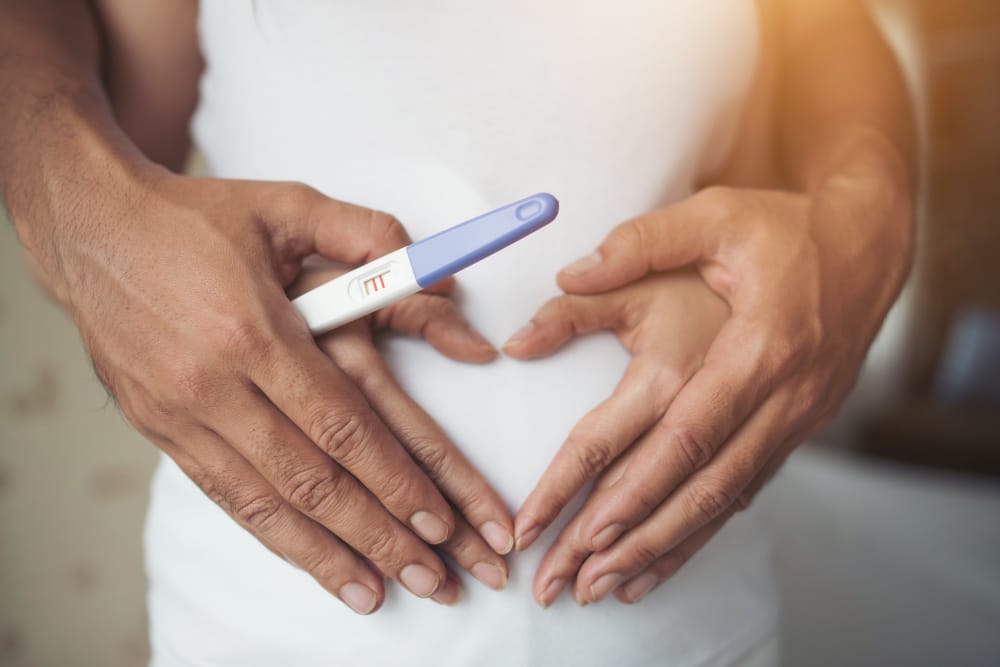Abortion is a personal decision and experience that can be emotional and physically demanding. After an abortion, it is important to understand how your body recovers and what changes to expect. For some women, there may be concerns about becoming pregnant again shortly after an abortion. Recognizing the signs of pregnancy after abortion is essential for taking care of your health and making informed decisions.
This article will explain how to identify the signs of pregnancy after abortion, using simple and easy-to-understand language. We will cover the common signs, how to differentiate them from post-abortion symptoms, and when to seek medical help.
Understanding Your Body After an Abortion
After an abortion, your body undergoes hormonal changes as it tries to return to its normal state. The recovery process can be different for everyone and may take a few weeks to months. Hormones like human chorionic gonadotropin (hCG), which are present during pregnancy, may still be detectable in your body for several weeks after the procedure. This can sometimes make it harder to tell if you are experiencing leftover effects of the abortion or if you are pregnant again.
When Does Your Menstrual Cycle Return?
Your menstrual cycle usually starts again about 4 to 8 weeks after an abortion. However, it is important to note that ovulation can happen as early as two weeks after the procedure. This means it is possible to become pregnant again very quickly if you have unprotected sex during this time. Paying attention to your body and recognizing the signs of pregnancy after abortion is crucial if you suspect you may have conceived.
Common Signs of Pregnancy After Abortion
Here are some common signs that might indicate pregnancy after an abortion. If you notice any of these signs, it is important to seek medical advice for confirmation.
1. Missed Period

A missed period is one of the earliest and most noticeable signs of pregnancy after abortion. However, after an abortion, your menstrual cycle may be irregular for some time. It’s important to track your cycle using a calendar or a mobile app. If your period does not return within six weeks, it could be a sign of pregnancy.
Example: If you had an abortion six weeks ago and your period hasn’t come back, this could indicate that you are pregnant. Taking a pregnancy test can help confirm this.
2. Breast Tenderness
Hormonal changes during pregnancy can cause your breasts to feel tender or swollen. While breast tenderness can also be a side effect of hormonal fluctuations after an abortion, persistent tenderness that increases over time might suggest pregnancy.
Tip: Pay attention to other changes, like darkening of the areolas, which can also be a sign of pregnancy.
3. Nausea and Morning Sickness

Feeling nauseous or experiencing morning sickness is one of the common and early signs of pregnancy after abortion. If you begin to feel queasy, especially in the morning or after eating certain foods, this could be an indication that you are pregnant again.
Example: Suppose you start feeling nauseous and you hadn’t experienced this symptom during your post-abortion recovery. This might be a clear sign to take a pregnancy test.
4. Fatigue

Pregnancy causes an increase in the hormone progesterone which can make you feel very tired. If you are feeling unusually tired even after getting enough sleep, this could be one of the signs of pregnancy after abortion.
Tip: Keep a record of your energy levels. If fatigue persists over several days, consult your doctor.
5. Frequent Urination

During early pregnancy, hormonal changes increase blood flow to your kidneys causing you to urinate more frequently. If you notice a sudden need to visit the bathroom more often without other explanations like increased fluid intake, this could be a pregnancy symptom.
6. Food Cravings or Aversions

Hormonal changes during pregnancy can also affect your appetite. You may crave certain foods or develop strong aversions to smells or tastes that didn’t bother you before.
Example: If you suddenly can’t take the smell of coffee or find yourself craving salty snacks it could be one of the early signs of pregnancy after abortion.
7. Emotional Changes

Mood swings are common in early pregnancy due to hormonal fluctuations. If you find yourself feeling unusually emotional, irritable or tearful, it might be worth considering whether you are pregnant.
8. Spotting or Implantation Bleeding

Light spotting, known as implantation bleeding can occur 6 to 12 days after conception. This type of bleeding is usually lighter and shorter than a regular period.
Tip: If you experience spotting that is lighter and stops quickly, it might be a sign of implantation bleeding rather than post-abortion bleeding.
To learn about positive signs after fertility procedures such as embryo transfer, read our detailed guide on Positive Signs After Embryo Transfer.
9. Positive Pregnancy Test

A pregnancy test is the most reliable way to confirm whether you are pregnant. However, keep in mind that leftover hCG from your previous pregnancy might give a false positive result. For accurate results it is best to take a test a few weeks after the abortion or consult your doctor for a blood test.
Differentiating Pregnancy Symptoms From Post-Abortion Symptoms
Sometimes, symptoms after an abortion can look similar to early pregnancy signs. Here’s how to tell the difference:
- Breast Tenderness: If the tenderness is due to post-abortion recovery, it will usually decrease over time. In pregnancy, it tends to increase.
- Bleeding: Post-abortion bleeding usually stops within two weeks. If you notice light spotting after the bleeding has stopped, it could be implantation bleeding.
- Fatigue: Post-procedure fatigue improves as your body recovers. In pregnancy, fatigue tends to persist and may even worsen.
When to See a Doctor
If you experience multiple signs of pregnancy after abortion, it is important to consult a doctor. Your healthcare provider can perform tests to confirm pregnancy and ensure your health is on the right track.
Potential Risks of Consecutive Pregnancies
Becoming pregnant shortly after an abortion can pose health risks, including complications like preterm birth or low birth weight. Your body needs time to heal before supporting another pregnancy. Doctors often recommend waiting at least a few months before trying to conceive again.
Steps to Take If You Suspect Pregnancy
- Take a Home Pregnancy Test: Use a test to check for hCG levels in your urine. For the best results, test in the morning when hormone levels are most concentrated.
- Track Your Symptoms: Write down any symptoms you are experiencing including when they started and how frequently they occur.
- Visit Your Doctor: Schedule an appointment to confirm pregnancy with a blood test or ultrasound.
- Discuss Your Options: If you are pregnant, speak with your healthcare professional about the next steps, whether you want to continue the pregnancy or consider other options.
Preventing Unplanned Pregnancies
If you are not ready to become pregnant again, consider using a reliable method of birth control. Options include:
- Oral contraceptive pills
- Intrauterine devices (IUDs)
- Condoms
- Long-acting reversible contraception (LARCs)
Your doctor can assist you choose the method that works best for you.
Conclusion
Understanding the signs of pregnancy after abortion is important for your health and peace of mind. By keeping track of your symptoms, taking a pregnancy test and consulting a doctor you can take the necessary steps to address your situation. Remember, every woman’s body is different and it is always okay to seek medical advice to ensure you are on the right path. If you suspect you may be pregnant, act quickly to confirm and plan for the next steps.
Frequently Asked Questions
1. Can you get pregnant immediately after an abortion?
Yes, it is possible to become pregnant as early as two weeks after an abortion because ovulation can occur before your next period. Using contraception is important if you wish to avoid pregnancy.
2. How can I differentiate between post-abortion symptoms and signs of pregnancy after abortion?
Post-abortion symptoms, like fatigue and breast tenderness, usually decrease over time, while pregnancy symptoms, such as morning sickness and missed periods, tend to persist or intensify.
3. How soon can I take a pregnancy test after an abortion?
You should wait at least 3-4 weeks after an abortion to take a pregnancy test. Testing too early can result in a false positive due to leftover hCG levels from the previous pregnancy.
4. What should I do if I suspect pregnancy after an abortion?
If you notice signs of pregnancy after abortion, such as a missed period, nausea, or fatigue, take a pregnancy test and consult a healthcare provider for confirmation and guidance.
5. Is it safe to have another pregnancy shortly after an abortion?
While it is possible to conceive soon after an abortion, doctors typically recommend waiting at least a few months to allow your body to heal and reduce potential health risks. Consult your doctor for personalized advice.
Images By: FreePik





Pingback: Negative Signs After Embryo Transfer: What to Do